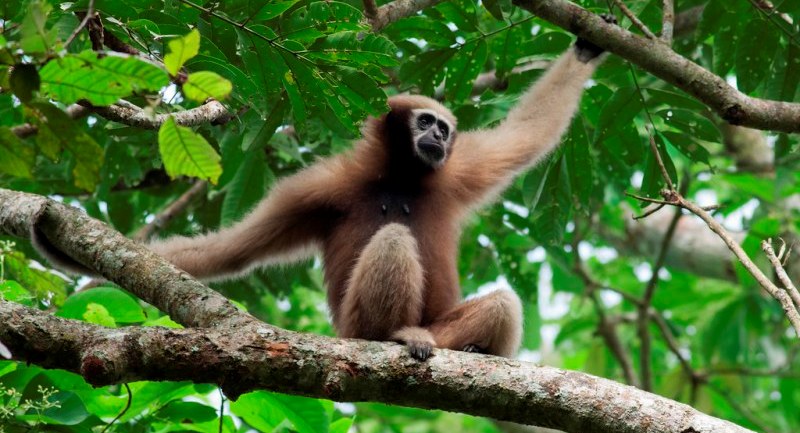Guwahati: The Western Hoolock Gibbon — India’s only ape — is facing a serious threat of extinction in the country, with populations already disappearing from several fragmented forest areas in the Northeast, a leading primatologist has warned.
Primatologist Dilip Chetry, who recently returned from the 30th Congress of the International Primatological Society (IPS) in Antananarivo, Madagascar, said unregulated human activities such as habitat encroachment, resource extraction, hunting, shifting cultivation, and infrastructure development are driving the species to the brink.
“There has been a steady decline in their population, and cases of local extinction have already been recorded in parts of the Northeast,” Chetry said.
Calling for urgent intervention, Chetry urged the central government to launch a dedicated Project Gibbon — modelled on Project Tiger and Project Elephant — to ensure long-term conservation of the species.
He also recommended the formulation of a Gibbon Conservation Action Plan in each of the northeastern states, ultimately leading to a national-level initiative with adequate funding.
The Western Hoolock Gibbon, one of the 20 species of gibbons found in Asia, is native to eastern Bangladesh, northeastern India, and parts of Myanmar.
In India, its population is confined to areas south of the Brahmaputra and east of the Dibang River, spanning seven northeastern states.
Chetry, who also serves as vice-chair of the IUCN SSC Primate Specialist Group – South Asia, stressed the need for a multi-pronged approach: restoration of degraded habitats, creation of ecological corridors, enhanced training for forest staff, community participation, and promoting the gibbon as a flagship species for conservation awareness.
The IPS Congress, held from July 20–25, brought together 657 experts from 53 countries to assess the status of endangered primates.
The event identified the “World’s 25 Most Endangered Primates” for the 2025–2027 period — a list that includes six Asian species, among them the Western Hoolock Gibbon, the Banka Slow Loris, Sangihe Tarsier, Pig-tailed Langur, Myanmar Snub-nosed Monkey, and the Tapanuli Orangutan.















